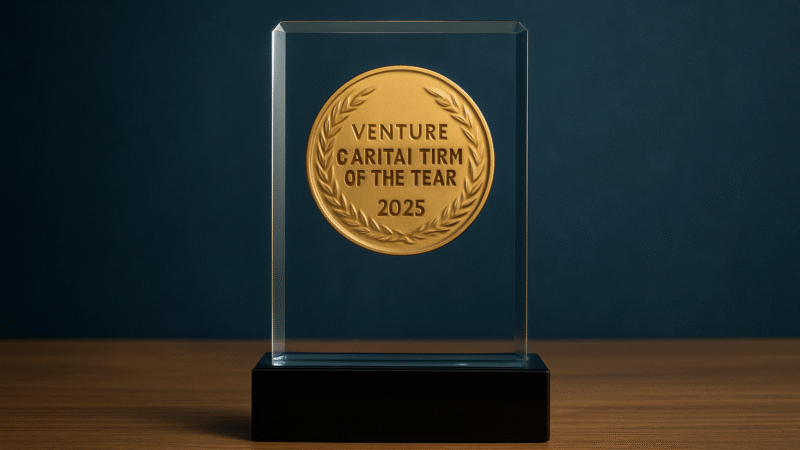How Crypto Casinos And Web3 Games Are Revolutionizing Blockchain Adoption?
Introduction
The blockchain ecosystem has evolved far beyond its initial financial use cases, becoming a dynamic infrastructure for countless industries. Among the most significant contributors to this transformation are crypto casinos and Web3 gaming platforms. These innovative entertainment ecosystems are not only redefining digital interaction but also acting as powerful catalysts for mainstream blockchain adoption.
As global tech culture shifts toward decentralization, Web3 gaming and crypto gambling are gaining momentum among younger generations. These platforms represent more than just leisure activities—they’re immersive, reward-based ecosystems that seamlessly integrate blockchain’s fundamental principles like decentralization, transparency, and tokenization. In this article, we explore the depth of their impact, the mechanisms behind their growth, and their role in shaping the future of blockchain utility.
Blockchain And Gaming: A New Era Of Interaction
The rise of blockchain gaming has redefined what it means to “own” digital assets. Unlike traditional games where in-game assets are tied to centralized servers and can be revoked or lost if the platform goes down, Web3 gaming offers true asset ownership through non-fungible tokens (NFTs). Players can buy, sell, or trade skins, weapons, characters, or even virtual land, all secured by blockchain technology.
This shift to player-owned economies is crucial to blockchain adoption because it introduces users to decentralized finance (DeFi) concepts in a low-risk, engaging environment. When players experience blockchain through play-to-earn (P2E) models, staking, or in-game governance tokens, they indirectly interact with DeFi primitives—staking, liquidity pools, yield farming—without even realizing it.
Popular Web3 games like Axie Infinity, Illuvium, The Sandbox, and Gala Games offer complex token economies and decentralized ecosystems where players participate in decision-making. These environments are more than just entertainment—they are live blockchain economies with real-world implications.
Crypto Casinos: Trustless Betting And Transparent Gambling
The online gambling industry has long been plagued by trust issues, lack of transparency, and centralization. Blockchain-based casinos aim to change that. Crypto casinos such as Stake.com, BC.Game, and Rollbit have emerged as leading platforms by leveraging blockchain to provide transparency, fairness, and user anonymity.
Smart contracts ensure that outcomes are provably fair and that the platform cannot manipulate odds. These casinos are also integrating decentralized identity (DID) and zero-knowledge proof (ZKP) technologies, enhancing user privacy while remaining compliant with regional regulations.
Moreover, the adoption of cryptocurrencies like Bitcoin, Ethereum, and USDT for betting introduces a low-friction experience for users globally. Without traditional banking limitations, crypto casinos offer near-instant payouts, borderless access, and lower fees.
The ease of entry and the transparent nature of blockchain technology help build trust in gambling platforms, encouraging wider adoption across varied demographics. This is particularly relevant in regions where access to traditional financial systems is limited, allowing crypto casinos to tap into underserved markets.
Younger Generations Are Leading The Charge
Millennials and Gen Z audiences are significantly more likely to adopt and experiment with emerging technologies, particularly those tied to gaming and digital finance. These digitally native generations are well-acquainted with in-game currencies, skins, and virtual economies, making the leap to NFTs and crypto wallets much easier.
Blockchain-based games and casinos provide a seamless bridge between Web2 familiarity and Web3 innovation. The learning curve is reduced, as users engage with blockchain not through abstract finance, but through interfaces and experiences that they already enjoy.
Furthermore, platforms have made onboarding easier by integrating with social login tools, enabling fiat-to-crypto gateways, and using layer 2 solutions to reduce transaction costs. These improvements in user experience are lowering the barriers to blockchain engagement, particularly among the youth.
This generational shift is also visible in content creation and streaming. Platforms like Twitch, YouTube Gaming, and Kick feature countless streamers showcasing their Web3 gaming experiences, encouraging others to explore decentralized environments. Influencer marketing plays a critical role in normalizing blockchain use in entertainment.
Tokenomics And Play-To-Earn: The Financial Incentive
The economic layer of Web3 games and crypto casinos is built on native tokens that serve as mediums of exchange, rewards, or governance assets. These tokens incentivize users to participate in the ecosystem—whether it’s through staking, playing, voting, or simply holding.
In the gaming world, P2E models offer financial rewards in return for time and skill. This new dynamic is turning players into earners, creating opportunities for supplementary income or even full-time employment in regions with limited economic opportunities.
On the gambling side, platforms offer loyalty tokens, yield opportunities, and decentralized finance integrations that go beyond simple betting. Users can stake tokens to receive platform revenue, participate in governance votes, or invest in platform growth.
These tokenomics are not just internal gimmicks; they create liquidity and user incentives that tie players and gamblers to the ecosystem long-term, increasing engagement and retention. The broader blockchain ecosystem benefits from increased wallet activity, cross-platform utility, and an overall boost in blockchain transactions.
Security, Regulation, And The Road To Legitimacy
With growing popularity comes increased scrutiny. Both Web3 games and crypto casinos face regulatory and security challenges. Concerns around money laundering, data protection, and financial integrity remain top priorities for regulators worldwide.
However, forward-thinking platforms are taking proactive steps to legitimize their operations. Many integrate know-your-customer (KYC) solutions, anti-money laundering (AML) protocols, and third-party audits of smart contracts to ensure compliance and user protection.
The convergence of entertainment and finance requires a hybrid regulatory framework—one that protects users without stifling innovation. Recent trends show jurisdictions like Malta, Singapore, and parts of the European Union embracing balanced crypto legislation that enables licensed gaming and betting operations on the blockchain.
Security also remains critical. As more value flows into Web3 gaming and crypto gambling platforms, these environments become prime targets for hacks and exploits. Layered security infrastructure, bug bounty programs, and real-time monitoring are essential to maintaining user trust.
Web3 Identity And Community Governance
The future of blockchain adoption also rests on decentralized governance. Many platforms are experimenting with community-driven models where token holders shape platform development. This democratic structure is a direct application of decentralized autonomous organizations (DAOs) and is growing in both gaming and gambling ecosystems.
Players and bettors can vote on game updates, payout structures, token burn schedules, and platform expansion. This collective decision-making empowers users, builds long-term commitment, and showcases blockchain’s potential for transparent governance at scale.
Identity systems are also evolving. Web3 gaming avatars and blockchain-based reputations are forming persistent digital identities that travel across platforms. This interoperability is unlocking new dimensions in user experience and loyalty, where in-game accomplishments, betting history, and earned tokens form a portable Web3 resume.
Challenges On The Horizon
Despite the momentum, there are still significant hurdles. The volatility of crypto markets directly impacts the economics of Web3 games and casinos. Regulatory uncertainty in key jurisdictions like the United States creates obstacles for platform scaling. Additionally, public skepticism around gambling and NFT speculation continues to affect perception.
Onboarding new users remains a pain point for many platforms. Wallet creation, private key management, and unfamiliar interfaces can deter less tech-savvy individuals. To address this, many projects are investing in user education, intuitive UX design, and hybrid Web2-Web3 experiences.
Interoperability between games and casinos is also a technical challenge. The dream of seamless asset movement across different platforms is still in development, but emerging standards like ERC-6551 (token-bound accounts) are moving the industry closer to this vision.
The Future: A Convergence Of Entertainment And Decentralization
The integration of crypto casinos and Web3 gaming into the broader blockchain narrative is not a fleeting trend. It reflects a deeper cultural and technological convergence, where decentralized protocols meet entertainment, identity, finance, and ownership.
As blockchain infrastructure matures and platforms continue to prioritize user experience, security, and compliance, we can expect gaming and gambling to become key gateways for mainstream blockchain adoption.
With millions of users engaging daily in these ecosystems, they’re not just playing or betting—they’re interacting with blockchain technology in real-time. This type of engagement is the clearest signal yet that the path to global adoption may not be through Wall Street, but through digital worlds, online casinos, and virtual arenas.
The success of this sector will depend on innovation, transparency, and collaboration. As regulators, developers, investors, and communities align, crypto casinos and Web3 gaming are poised to become not just entertainment options but foundational pillars of the decentralized future.
Conclusion
As blockchain technology continues to evolve, it’s no longer confined to financial institutions, developers, or crypto-native investors. Instead, it’s becoming embedded in everyday digital experiences—particularly through entertainment ecosystems like crypto casinos and Web3 games. These platforms offer far more than fun or speculation; they are powerful entry points into the decentralized world, especially for younger and digitally fluent generations.
By leveraging transparency, true digital ownership, and token-based economies, Web3 games and crypto casinos demonstrate blockchain’s practical value in real-time. They are not only normalizing blockchain use but also reshaping how users think about identity, value, and participation in online communities.



